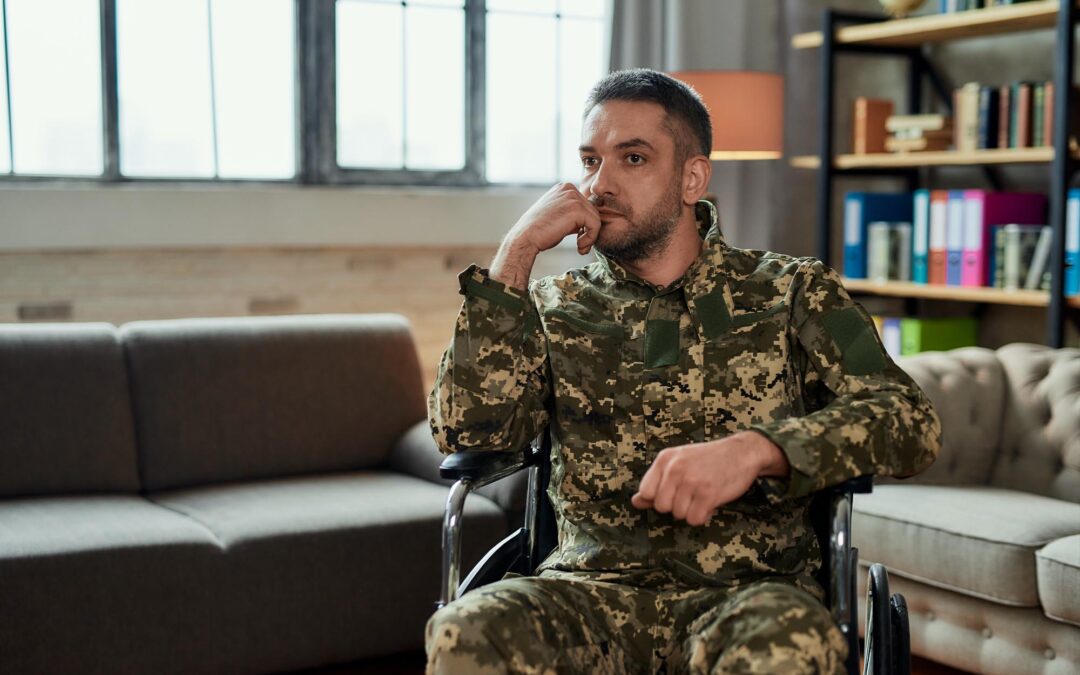Understanding Couples Therapy
Couples therapy is a powerful tool for partners who want to strengthen their relationship and overcome challenges together. This type of counseling provides a safe space for couples to:
- Discuss conflicts
- Improve communication
- Rebuild emotional connections
All of this is done with the guidance of a professional therapist.
Core Components of Couples Therapy:
- Active listening exercises
- Communication skill development
- Emotional regulation techniques
- Problem-solving strategies
- Trust-building activities
Modern couples therapy uses different proven methods to meet the unique needs of each relationship. Cognitive-behavioral therapy (CBT) helps partners identify and change negative thought patterns that are affecting their relationship. Dialectical behavior therapy (DBT) teaches couples how to manage intense emotions and improve their ability to interact with each other.
Specialized Programs for Complex Challenges
Some couples face additional difficulties that require specialized treatment approaches. Addiction treatment programs provide targeted support for partners dealing with substance abuse issues. These programs combine relationship counseling with:
- Individual addiction recovery support
- Group therapy sessions
- Family healing workshops
- Relapse prevention strategies
- Co-dependency awareness training
For those struggling with behavioral addiction, Behavioral Addiction Treatment in Massachusetts offers comprehensive outpatient treatment and psychiatric day treatment tailored to these specific needs.
Holistic Therapy Integration
Holistic approaches enhance traditional couples therapy by addressing mental, physical, and spiritual well-being. These complementary techniques include:
- Mindfulness meditation
- Art therapy
- Breathwork exercises
- Movement therapy
- Sound healing
The integration of holistic methods helps couples:
- Reduce stress responses
- Process emotions creatively
- Build deeper connections
- Develop shared healing practices
- Strengthen their bond through shared experiences
Evidence-Based Treatment Methods
Research-backed therapies form the foundation of effective couples counseling. Key approaches include:
- Behavioral Couples Therapy (BCT): Focuses on changing destructive interaction patterns
- Emotionally Focused Therapy (EFT): Helps rebuild emotional attachments
- Gottman Method: Uses research-based interventions to strengthen relationships
- Narrative Therapy: Helps couples rewrite their shared story
These therapeutic approaches can be customized to address specific relationship challenges while building lasting positive change. Professional therapists select and combine methods based on each couple’s unique situation, creating personalized treatment plans that support sustainable relationship growth.
For those struggling with mental health issues alongside relationship problems, Advanced Therapy Center offers comprehensive care for mental health conditions in Massachusetts. Their professionals use evidence-based therapies to provide personalized care, ensuring a holistic approach to both mental health and relationship wellness.
Conflict Resolution Strategies in Couples Therapy
Creating a structured environment for conflict resolution is a fundamental aspect of effective couples therapy. This structured approach provides partners with a safe space to address challenging issues without fear of emotional escalation or judgment.
Key elements of a structured therapeutic environment include:
- Designated Speaking Time: Each partner receives equal opportunities to express their thoughts and feelings without interruption
- Active Listening Protocols: Partners practice reflecting back what they’ve heard to ensure clear understanding
- Emotional Safety Guidelines: Establishing ground rules for respectful communication and maintaining emotional boundaries
Setting agreed-upon timing and topics helps couples maintain focus during therapy sessions:
- Pre-determined session duration (typically 50-90 minutes)
- Specific issue selection for each session
- Time limits for discussing individual topics
- Scheduled check-ins to assess emotional states
The implementation of strategic breaks plays a vital role in managing emotional intensity:
- 5-10 minute pauses when tension rises
- Physical separation to process emotions independently
- Breathing exercises or grounding techniques during breaks
- Return protocols for resuming discussions
Therapists guide couples through expressing thoughts and feelings using structured communication tools:
- “I” statements to share personal experiences
- Time-outs when discussions become unproductive
- Emotion identification exercises
- Non-violent communication techniques
A structured therapeutic environment enables couples to:
- Address conflicts systematically
- Maintain emotional regulation
- Practice new communication skills
- Build trust through consistent boundaries
- Develop sustainable conflict resolution patterns
These strategies create a foundation for productive dialogue, allowing couples to work through conflicts while maintaining emotional safety and respect for each other’s perspectives.
Therapeutic Approaches Used in Couples Therapy for Conflict Resolution
Emotionally Focused Therapy (EFT)
Emotionally Focused Therapy (EFT) is a highly effective therapeutic approach used in couples counseling. Its primary focus is on strengthening emotional bonds and rebuilding trust between partners.
How EFT Works
EFT helps partners recognize and break free from negative interaction cycles by:
- Identifying emotional triggers that lead to conflicts
- Understanding underlying attachment needs
- Creating new patterns of emotional responsiveness
- Building secure emotional connections
Stages of EFT Sessions
EFT sessions typically progress through three key stages:
- De-escalation: Partners learn to identify their conflict cycle and reduce negative interactions
- Restructuring: Couples express deeper emotions and needs in a way that creates bonding
- Consolidation: New patterns of interaction become natural and sustainable
Mindfulness-Based Interventions
Mindfulness-Based interventions complement EFT by helping couples develop present-moment awareness and emotional regulation skills. These practices include:
- Mindful CommunicationSpeaking with intention and awareness
- Listening without judgment
- Pausing before reacting to triggers
- Emotional Intelligence DevelopmentRecognizing personal emotional patterns
- Understanding partner’s emotional experiences
- Responding with empathy rather than reaction
Benefits of Mindfulness in Couples Therapy
Research shows that couples who practice mindfulness together experience:
- Reduced stress responses during conflicts
- Improved emotional regulation
- Enhanced relationship satisfaction
- Better conflict resolution outcomes
The Integration of EFT and Mindfulness
The integration of EFT and mindfulness creates a comprehensive approach to healing relationship wounds. Partners learn to:
“Turn toward each other in times of distress rather than away”
This combined therapeutic approach helps couples build stronger emotional connections while developing practical tools for managing conflicts. The skills learned through these methods continue to benefit relationships long after therapy ends.
When to Consider Seeking Couples Therapy and What to Expect from the Process?
Recognizing the right time to seek couples therapy can make a significant difference in your relationship’s trajectory. Here are key signs indicating it’s time to consider professional help:
Signs You Need Couples Therapy:
- Repeated arguments without resolution
- Growing emotional distance between partners
- Difficulty expressing feelings or needs
- Trust issues or infidelity concerns
- Significant life changes affecting your relationship
- Communication patterns turning hostile or distant
The decision to seek therapy isn’t an admission of failure – it’s a proactive step toward strengthening your relationship. Many couples wait too long before seeking help, allowing issues to become deeply entrenched.
What to Expect in Couples Therapy:
- Initial AssessmentIndividual and joint interviews
- Discussion of relationship history
- Setting specific goals for therapy
- Regular SessionsWeekly or bi-weekly meetings
- Safe environment for open dialogue
- Learning new communication techniques
- Practicing conflict resolution skills
Your therapist will guide you through identifying destructive patterns and developing healthier ways to interact. They’ll provide tools and strategies tailored to your specific situation, helping you build a stronger foundation for your relationship.
If you’re recognizing these signs in your relationship, it might be time to take a proactive step towards healing by considering couples therapy. Remember: successful therapy requires commitment from both partners and willingness to examine behaviors honestly. The process might feel challenging at times, but it offers valuable opportunities for growth and deeper connection.



